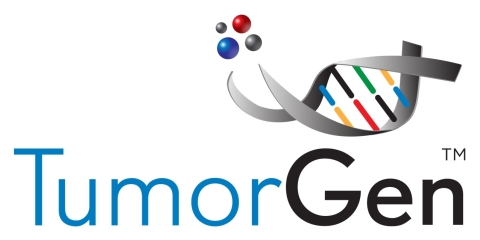TumorGen and PhenoVista Join Forces to Illuminate Metastasis
TumorGen and PhenoVista Join Forces to Illuminate Metastasis
Collaboration will integrate TumorGen’s microfluidic capture system with PhenoVista’s cell cluster imaging platform to identify the origins of metastasis.
SAN DIEGO--(BUSINESS WIRE)--TumorGen Inc., a biotechnology company, and PhenoVista Biosciences LLC, a specialized contract research organization, are partnering to characterize metastatic cancer cell clusters (MCCCs). By revealing the traits that govern MCCCs, they hope to identify potential therapeutic targets and catalyze efforts to develop much-needed anti-metastatic drugs.
“The analytical imaging power PhenoVista can bring to our MCCC capture technology is essential,” said TumorGen Founder, President and CEO, Jeffrey K. Allen, Ph.D. “Working directly with PhenoVista will help leverage our MCCC capture capabilities to identify unseen drug targets. With this data, TumorGen will be well-positioned to begin commercialization efforts and establish partnerships with biopharmaceutical companies focused on emerging anti-metastatic therapeutics.”
TumorGen will use its microfluidic platform to capture MCCCs from patient blood. PhenoVista will apply its specialized cell analysis technologies to illuminate how these clusters hold together and avoid the body’s immune response. Revealing these inter-cellular signals will change how we understand metastasis, leading to new therapies.
“Characterizing MCCCs with our high-content imaging technology could reveal the critical inter-cellular communication within the cluster that makes it so deadly,” said James Evans, Ph.D., PhenoVista Biosciences CEO. “Illuminating the complex interactions between cancer cells and immune cells, such as macrophages, and neutrophils, will reveal how MCCCs evade immune surveillance and form new tumors.”
Metastasis (the spread of malignant cells throughout the body) causes over 90% of cancer deaths. Scientists have known MCCCs drive this spread but have lacked easy methods to investigate these critically important cell clusters. Also significant is that MCCCs contain both cancer and immune cells, thus providing the opportunity to develop cutting-edge therapies based on immuno-oncology which can inhibit metastasis.
“Understanding MCCC cell status, including whether immune cells are tumor suppressive or tumor supportive, is critically important," said Darren Finlay, Ph.D., Director of Tumor Analysis at Sanford Burnham Prebys Medical Discovery Institute, an NCI-Designated Cancer Center. Finlay is co-investigator on TumorGen’s recent SBIR grant from the National Cancer Institute. “These findings could provide huge insights to leverage the immune system to develop first-in-class, anti-metastatic drugs.”
To learn more about TumorGen and PhenoVista Biosciences, visit: www.tumorgen.net and https://phenovista.com/.
Contacts
Jeffrey K. Allen, Ph.D. info@tumorgen.net
Raymond Price, Ph.D. contact@phenovista.com
